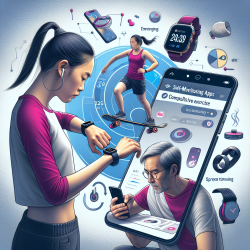The "Take it Personal!" program is an innovative intervention aimed at reducing substance use among adolescents and young adults with mild intellectual disabilities and borderline intellectual functioning. Developed by Schijven et al., the program is grounded in the theory that personality traits are crucial in understanding substance use behaviors in individuals aged 14 to 30.
The Intervention Mapping Protocol
The development of "Take it Personal!" followed the Intervention Mapping protocol, a systematic approach to designing health promotion interventions. This protocol ensures that interventions are theory- and evidence-based, increasing their potential effectiveness.
Key Steps in Intervention Mapping
- Needs Assessment: Identifying the specific needs of the target population and the factors influencing substance use.
- Program Objectives: Setting clear goals for reducing substance use through personality-targeted strategies.
- Program Design: Developing activities and materials tailored to the unique characteristics of individuals with mild intellectual disabilities.
- Implementation Planning: Creating a detailed plan for delivering the intervention effectively.
- Evaluation Planning: Establishing methods for assessing the program's feasibility, user-friendliness, and effectiveness.
Outcomes of the Modelling Study
A small modelling study involving six adolescents was conducted to evaluate the feasibility and user-friendliness of the "Take it Personal!" program. The results were promising, indicating that participants experienced reduced frequency of substance use, binge drinking, and problematic behaviors post-intervention compared to pre-intervention levels.
Implications for Practitioners
The findings suggest that "Take it Personal!" can be a valuable tool for practitioners working with adolescents with mild intellectual disabilities. By incorporating personality-targeted strategies into their practice, professionals can potentially improve outcomes for this vulnerable group.
Encouraging Further Research
While the initial results are encouraging, a larger-scale study is necessary to draw definitive conclusions about the program's effectiveness. Practitioners are encouraged to engage in further research to explore how similar interventions can be adapted and implemented in diverse settings.
Steps for Practitioners
- Stay Informed: Attend conferences and webinars focused on recent developments in substance use prevention among individuals with intellectual disabilities.
- Collaborate: Network with other professionals to share insights and strategies for implementing personality-targeted interventions.
- Participate in Research: Consider collaborating with researchers to contribute to studies evaluating new intervention models.
- Customize Interventions: Tailor programs like "Take it Personal!" to meet the specific needs of your client population.
The "Take it Personal!" study highlights the potential for targeted interventions to make a significant impact on reducing substance use among adolescents with mild intellectual disabilities. By integrating these insights into practice, professionals can enhance their skills and contribute to better outcomes for their clients.
To read the original research paper, please follow this link: Take it personal! Development and modelling study of an indicated prevention programme for substance use in adolescents and young adults with mild intellectual disabilities and borderline intellectual functioning.










